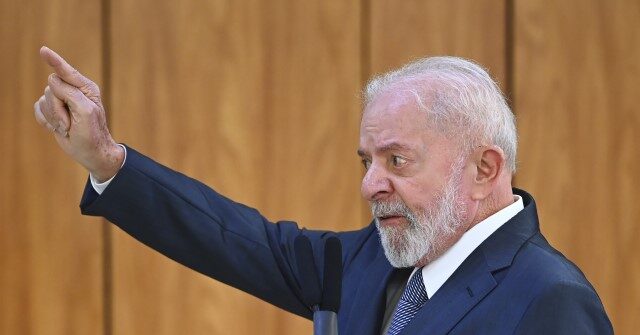The recent events surrounding Venezuela’s quest for admission into the BRICS alliance have intensified political tensions between the Venezuelan socialist regime led by Nicolás Maduro and Brazil’s government under President Luiz Inácio Lula da Silva. During the annual BRICS summit held in Kazan, Russia, Maduro was hopeful that Venezuela would finally receive an invitation—either as a full member or as a “partner” nation. His aspirations, however, were dashed as the group extended invitations to 13 other nations but excluded Venezuela. This disappointment highlights Maduro’s ongoing struggle to secure a place within the international diplomatic and economic community, a goal he has pursued for over a decade but has not achieved.
The decision to deny Venezuela’s admission is reportedly linked to the Brazilian government’s position, with allegations that Brazil initiated the veto against Venezuela’s participation. Lula, who maintains a leftist alignment with Maduro, appears to have changed his stance following the aftermath of the disputed presidential election in Venezuela and the regime’s failure to provide transparent voter data. This scenario underscores the complexities of intra-left alliances, particularly as Lula’s administration expresses dissatisfaction with Maduro’s governance following the election’s questionable legitimacy. Lula’s close advisors, including Celso Amorim, have indicated that the decision to exclude Venezuela was tied more to a “breach of trust” than to ideological opposition, signifying a significant shift in Brazil’s relations with its neighbor.
Venezuela’s Ministry of Foreign Affairs reacted strongly to its exclusion, accusing Brazil of perpetuating an “immoral aggression.” Maduro’s government portrayed this decision as a continuation of the policies established by former President Jair Bolsonaro, despite Bolsonaro’s departure from office at the start of 2023. Such claims reflect a strategy of portraying opposition to Venezuelan socialism as a systematic effort by Western powers to isolate the country. Nonetheless, internal dynamics within Brazil, particularly Lula’s distancing from Maduro following the election debacle, reveal a different narrative, one rooted in trust rather than merely political ideology.
Lula’s administration, on the other hand, has indicated that Brazil’s position was crucial in keeping Venezuela out of BRICS, as the country’s actions have strained the cooperative spirit expected among leftist allies. Amorim has articulated that the failure to present legitimate electoral data was a significant factor in the decision, marking a serious breach of trust that has led to Lula feeling misled. Consequently, relations between Brazil and Venezuela have deteriorated sharply, with Brazil purportedly deciding to “freeze” diplomatic relations instead of severing them outright. Analysts in Caracas depict Maduro’s visit to Kazan as a failure, marking a significant setback not only in his international aspirations but also in his domestic political standing.
Furthermore, Vladimir Putin acknowledged the disparity in perspectives between Brazil and Russia regarding Venezuela, reinforcing that cooperation among BRICS member states hinges upon consensus. While Putin continues to recognize Maduro as Venezuela’s legitimate leader, he also elucidated that Brazil’s opposition is a fundamental barrier to Venezuela’s entry into BRICS. This acknowledgment reflects the intricate web of international politics, where alliances are often fluid and contingent upon the actions of individual states, significantly impacting smaller nations like Venezuela that are seeking broader global partnerships.
In conclusion, the developments in the BRICS summit illustrate the fragile state of international relations, especially in Latin America, where historically friendly ties can quickly unravel due to domestic politics and differing priorities. Maduro’s exclusion from BRICS not only emphasizes Brazil’s shifting stance under Lula but also mirrors a growing sense of isolation for Venezuela on the global stage. As Maduro’s government grapples with internal legitimacy issues and external diplomatic setbacks, the future remains uncertain, with both economic and political ramifications for the country and its relationships within the international order. With Brazil opting to distance itself from Venezuela while still maintaining diplomatic lines, the ongoing saga of Maduro’s regime continues to unfold amidst a tapestry of larger geopolitical dynamics.

